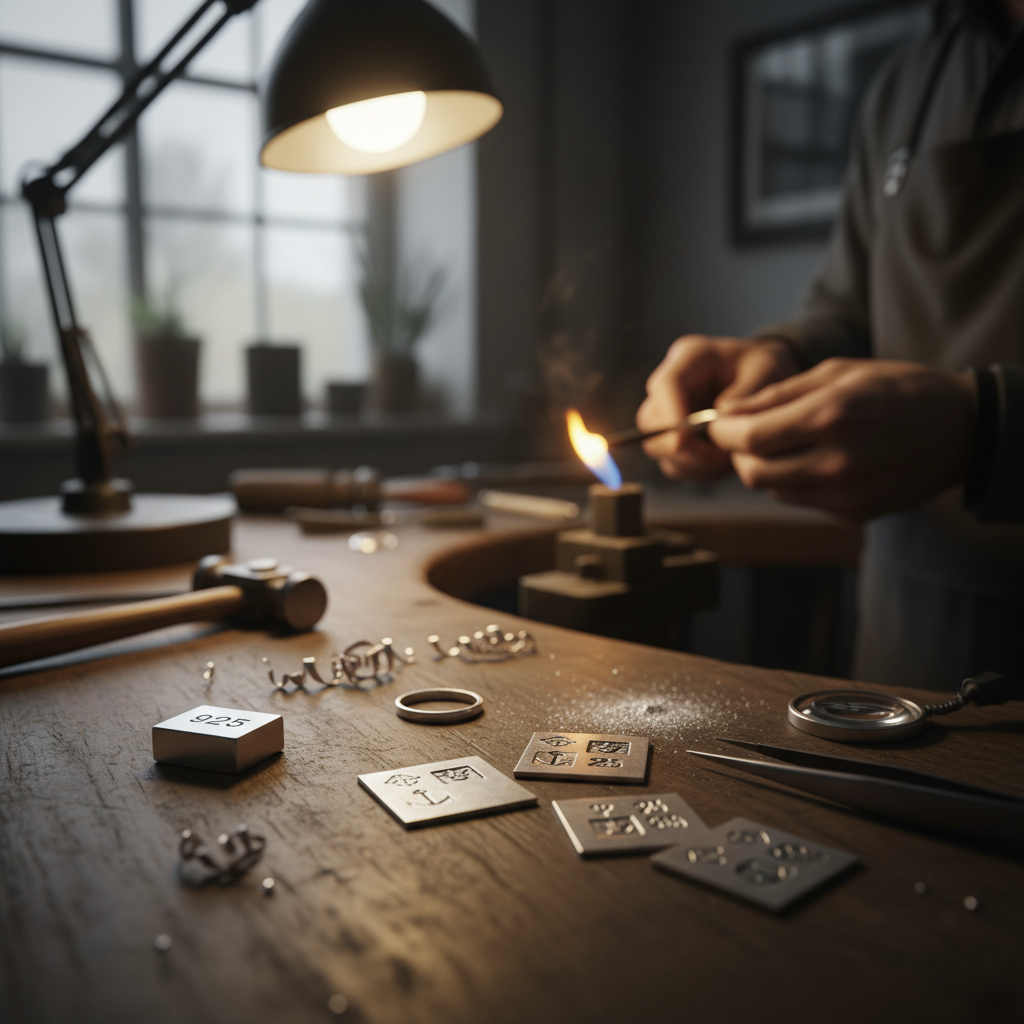
Sterling Silver, Hallmarks, And What “925” Really Means
Share
What Counts As “Sterling”
In jewelry, “sterling silver” is a specific alloy: at least 92.5% pure silver balanced by 7.5% other metals, historically copper. That 92.5% standard is why you’ll see “925” stamped on genuine pieces. Hardness and wear resistance increase compared to pure silver, which is too soft for rings and chains.
Fineness numbers express parts per thousand of precious metal. “925” means 925/1000 silver; “800” means 80% silver. Older European flatware may show “800” or “835.” In retail jewelry, 925 is the common global norm.
Hallmarks: Reading The Tiny Story Inside Your Ring
In countries with statutory hallmarking (notably the UK), independent Assay Offices test and mark precious-metal items above certain weights. A full UK hallmark typically combines: a sponsor’s (maker’s) mark, a fineness mark (e.g., 925), and an Assay Office symbol (e.g., the Birmingham “anchor”). These marks are legal purity guarantees, not just brand logos.
Outside mandatory systems, you’ll still see “925” or “STERLING” as manufacturer stamps indicating claimed purity, but they are not the same as an official assay hallmark. When in doubt, ask for documentation or a third-party test.
Sterling Versus Other Silvers
You may encounter “Britannia silver” (at least 95.84% Ag). It’s softer and rarer in modern jewelry but appears in historic objects. The distinction matters for restorers and collectors because polishing and repair approaches can differ with higher-silver alloys.
Solid Sterling, Plated, Or “Coin Silver”?
Sterling (925): solid alloy throughout.
Silver-plated: a thin silver layer over base metal; will not carry a legal hallmark as solid silver in regulated markets.
“800 silver/coin silver”: older standards you’ll see in antiques rather than new craft jewelry.
Buying Checklist For Customers
Look for a fineness mark (925) and, where applicable, a full hallmark.
Check that the mark matches the product description and price point.
When shopping online, verify seller policies on authenticity testing and returns.
If you have metal sensitivities, ask whether solder, findings, or ear posts contain nickel (even with sterling bodies).

